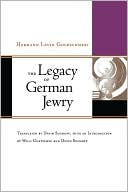Category Books
- Fiction Books & Literature
- Graphic Novels
- Horror
- Mystery & Crime
- Poetry
- Romance Books
- Science Fiction & Fantasy
- Thrillers
- Westerns
- Ages 0-2
- Ages 3-5
- Ages 6-8
- Ages 9-12
- Teens
- Children's Books
- African Americans
- Antiques & Collectibles
- Art, Architecture & Photography
- Bibles & Bible Studies
- Biography
- Business Books
- Christianity
- Computer Books & Technology Books
- Cookbooks, Food & Wine
- Crafts & Hobbies Books
- Education & Teaching
- Engineering
- Entertainment
- Foreign Languages
- Game Books
- Gay & Lesbian
- Health Books, Diet & Fitness Books
- History
- Home & Garden
- Humor Books
- Judaism & Judaica
- Law
- Medical Books
- New Age & Spirituality
- Nonfiction
- Parenting & Family
- Pets
- Philosophy
- Political Books & Current Events Books
- Psychology & Psychotherapy
- Reference
- Religion Books
- Science & Nature
- Self Improvement
- Sex & Relationships
- Social Sciences
- Sports & Adventure
- Study Guides & Test Prep
- Travel
- True Crime
- Weddings
- Women's Studies
The Legacy of German Jewry »

Authors: Willi Goetschel, David Suchoff (Translator), Hermann Goldschmidt
ISBN-13: 9780823228263, ISBN-10: 0823228266
Format: Hardcover
Publisher: Fordham University Press
Date Published: November 2007
Edition: (Non-applicable)
Author Biography: Willi Goetschel
Hermann Levin Goldschmidt (1914-1998) founded and directed the Judisches Lehrhaus in Zurich from 1952 to 1962. This is his first book to be translated into English.
David Suchoff is Professor of English at Colby College. He is the author of Critical Theory and the Novel: Mass Society and Cultural Criticism in Dickens, Melville, and Kafka.
Willi Goetschel is Professor of German and Philosophy at the University of Toronto. He is the editor of the collected works of Hermann Levin Goldschmidt and author of <
Willi Goetschel is Professor of German and Philosophy at the University of Toronto. He is the editor of the collected works of Hermann Levin Goldschmidt and author of Constituting Critique: Kant's Writing as Critical Praxis and Spinoza's Modernity: Mendelssohn, Lessing, and Heine.
Book Synopsis
First published in 1957, The Legacy of German Jewry is a comprehensive rethinking of the German-Jewish experience. Goldschmidt challenges the elegiac view of Gershom Scholem, showing us the German-Jewish legacy in literature, philosophy, and critical thought in a new light.Part One re-examines the breakthrough to modernity, tracing the moves of thinkers like Moses Mendelssohn, building on the legacies of religious figures like the Baal Shem Tov and radical philosophers such as Spinoza. This vision of modernity, Goldschmidt shows, rested upon a belief that 'remnants' of the radical past could provide ideas and energy for reconceiving the modern world. Goldschmidt's philosophy of the remnant animates Part Two as well, where his account of the political history of the Jews in modernity and the riches of Jewish culture as recast in German-Jewish thought provide insights into Leo Baeck, Hermann Cohen, and Franz Rosenzweig, among others. Part Three analyzes the post-Auschwitz complex, and uses the Book of Job to break through that trauma.Ahead of his time and biblical in his perspective, Goldschmidt describes the innovative ways that German-Jewish writers and thinkers anticipated what we now call multiculturalism and its concern with the Other. Rather than destined to destruction, the German-Jewish experience is reconceived here as a past whose unfulfilled project remains urgent and contemporary—a dream yet to be realized in practice, and hence a task that still awaits its completion.
Table of Contents
Subjects
 Judaism & Judaica
Judaism & Judaica  General & Miscellaneous Judaism
General & Miscellaneous JudaismHistory
 European History
European History  German History
German HistoryHistory
 Religious History
Religious History  Judaism & Judaica
Judaism & JudaicaHistory
 World History
World History  Jewish History
Jewish HistoryNonfiction
 Social Sciences
Social Sciences  Jewish Studies
Jewish StudiesReligion Books
 Judaism & Judaica
Judaism & Judaica  General & Miscellaneous Judaism
General & Miscellaneous JudaismScience & Nature
 Social Sciences
Social Sciences  Jewish Studies
Jewish StudiesSocial Sciences
 Jewish Studies
Jewish Studies  Jewish History
Jewish HistoryChristianity
 Christianity
Christianity  All Religion
All ReligionNonfiction
 History
History  European History
European HistoryNonfiction
 History
History  Religious History
Religious HistoryNonfiction
 History
History  World History
World HistoryNonfiction
 Religion
Religion  All Religion
All ReligionReligion Books
 Christianity
Christianity  All Religion
All Religion
